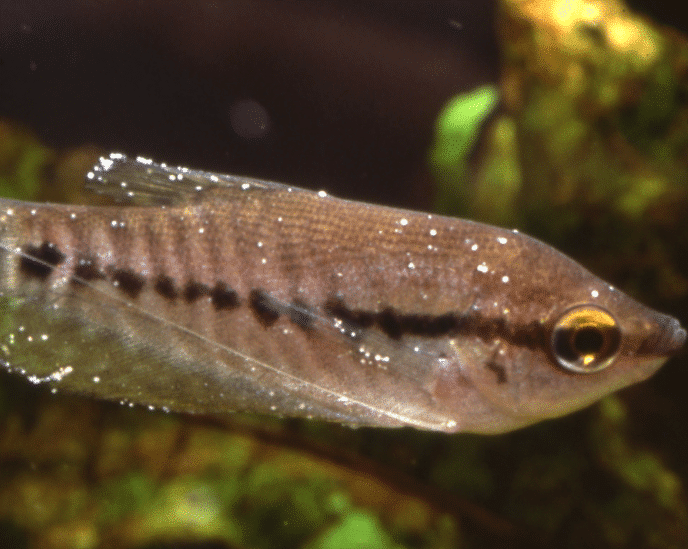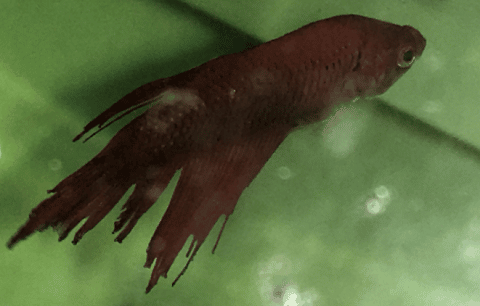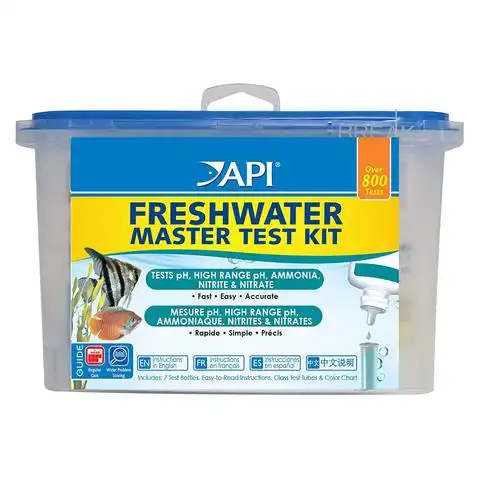Thank you for visiting! By the way… any links on this page that lead to products on Amazon and other stores/partners are affiliate links Aquarium Store Depot earns a commission if you make a purchase.
Betta fish, also known as Siamese fighting fish, are an aquarist’s favorite fish because of their beautiful color and temperament. If you’re a betta owner, you’ll notice that despite taking care of your precious fish, your betta is still losing color, which is a serious concern for many fish keepers.
There are a number of reasons why betta fish loses its color, the number one being; stress. Since betta fish are sensitive aquarium fish that can get stressed against several external stimuli. Sometimes, a little change such as changing the environment or tank transfer may induce stress in your betta fish.
In this article, we will discuss 7 common reasons why your betta might be losing color.
Top 7 Reasons Why Your Betta Fish Is Losing Its Color
Here are the top 7 reasons why your Betta is losing color.
1. Introducing A New Member To The Tank
Betta fish are highly territorial and aggressive. Therefore, any new fish added to the aquarium is seen as a potential threat to their territory. Hence, this leads to aggression and territorial behavior in the aquarium. Your betta fish might flare the fins or chase new fish to get rid of the new fish, eventually leading to stressful behavior.
Therefore, I always suggest choosing the tank mates carefully for your betta’s aquarium. If you’re planning to introduce a new fish in the tank, provide lots of hiding places and decorations for the fish.
2. Stress
Betta will always lose color under stress. When Bettas are under stress, their bodies release a hormone that results in your fish losing color. The amount of color loss is dependent on the severity of the stress. In serious circumstances, your betta fish turns white or loses color1.
There are so many reasons for stress in Betta fish such as changes in the environment, poor water quality, poor diet, and other fish that are incompatible.
If you want your fish to maintain their vibrant colors, it’s important to provide them with a stress-free environment. Always maintain water quality, monitor water parameters, and avoid adding too many fish in the betta tank.
3. Diseases
If stress or other water parameters are not the underlying cause of your betta fish losing color, then illness is a possible reason.
Betta fish may catch fish diseases such as parasites or bacterial infections that cause them to lose their vibrancy.
Ich

Ich is a parasitic infection that causes white spots on the betta’s skin and fins. Ich is one of the leading reasons your betta fish turning white or losing color. To treat ich, several medications are prescribed but it’s important to identify the underlying cause.
Fin Rot
Fin rot is caused by bacterial infections. The symptoms include; frayed betta fins or ragged fins and may also affect the fish’s skin. If left untreated, it can be a deadly infection.
The common causes of fin rot are:
- Poor water quality
- Overcrowding
- Improper diet
- Physical trauma and stress

Anchor Worms
Anchor worms are contagious. And the best part is they can see with the naked eye. Anchor worms are parasites that appear as long, thin, and thread-like particles on the betta’s body.
The infected fish shows symptoms such as:
- Scratching or rubbing against objects
- Loss of appetite
- Loss of color
- Lacerations and ulcerations on the betta’s body
4. Poor Water Quality
Betta fish are native to slow-moving waters in Southeast Asia. Therefore, they need particular water conditions to remain healthy and happy in their tank. When the water parameters are not properly maintained, it can lead to a variety of problems, including fish diseases and loss of color.
I always suggest regularly testing the water and making adjustments to maintain water parameters and quality. Always test the water to make sure that it is within the ideal ranges.
pH
First of all, the pH of betta tank water should be maintained. Betta fish likes slightly acidic pH ranging between 6.5 to 7.5. If you keep the pH too high or low, your fish might fall victim to stress and ultimately lose color.
Ammonia, Nitrite, and Nitrates
It is vital to monitor the levels of ammonia, nitrite, and nitrate in the tank water. High levels of ammonia and other toxins may result in deadly fish diseases.
If the tank water is not properly maintained, it can lead to a variety of health problems, including a loss of color. Proper water quality is essential for bettas, and it is important to regularly test the water and make sure that it is within the proper range for pH, ammonia, nitrite, and nitrate levels to avoid ammonia poisoning or nitrate poisoning.
Best Aquarium Test Kit For Freshwater
With all the essentials and accurate testing, this test kit is the best one to get you started
5. Poor Diet
Betta fish require a varied, nutritious, and carnivorous diet in order to maintain their health and vibrancy. A diet that is lacking in nutrients or that is unbalanced can lead to a variety of health problems, including a loss of color.
Since betta is carnivorous, their diet mainly consists of protein. It’s crucial to feed them food high in protein such as live or frozen foods, brine shrimp, daphnia, and bloodworms. I also advise feeding them freeze-dried foods or dry food supplements to improve their health and color vibrancy.
Best Betta Food
Fluval bug bites is made of various insect and shrimp ingredients making this a high quality source of protein
Along with protein-rich diet, feed your betta vitamins and minerals as a color-enhancing food but make sure the diet is balanced to maintain the health and vibrancy of the fish, without overfeeding fish.
6. Incorrect Water Temperature
Water temperature plays a vital role in maintaining the vibrancy of your betta fish. Since bettas are tropical fish, they prefer consistent water temperatures to remain happy and healthy. Too high or too low water temperature can cause stress and other health problems in your betta fish, including color loss.
Effect Of High Temperatures
At high temperatures, betta fish is susceptible to stress and diseases, and this might be the reason for your betta fish turning white or losing color. At high temperatures, the betta’s body stops functioning properly, which results in low pigment production. Hence, the color loss.
Effect Of Low Temperatures
Low water temperature is equally harmful to the betta fish as the cold water usually slows down your fish’s metabolism. As a result, they become more prone to diseases and stress. Additionally, the pigment cells of betta fish contract at low temperatures, resulting in a loss of color.
Ideal Water Water For Betta Fish
To maintain the color and vibrancy of your betta fish, it’s important to keep the water temperature in ideal range.
The ideal water temperature for your betta tank is between 76 and 82 degrees Fahrenheit (24-28 degrees Celsius). I suggest using a reliable thermometer to monitor and maintain a consistent temperature.
7. Old Age
One of the main reasons your betta is suffering from color loss is nothing, but the inevitable; old age!
As your betta fish ages, you’ll realize that it appears less vibrant and less colorful as the younger fish in the tank.
There are many factors that contribute to the color loss in older betta fish.
- Low production of pigment in the betta’s body
- Decline in overall’s betta health
- Stress and fish diseases
If your older Betta is suffering from color loss, it’s not uncommon. However, you need to maintain proper water quality and betta’s diet to avoid other problems and illness.
How To Brighten Their Color
If your betta fish is progressively losing its color and you have no idea why, there are a few things you can do to get those beautiful, bright colors back.
Monitor Water Quality
The good thing about betta fish is its ability to thrive in small aquariums. However, the small containers, vases and jars often become too toxic for your betta fish to live in. The traces of ammonia, nitrates, and nitrites may cause other deadly fish diseases, resulting in a loss of color.
Therefore, it is recommended to monitor and maintain the water quality and choose the appropriate tank size for your betta fish. The ideal tank size should be no less than 5 gallons.
Feed Them Shrimp
It’s a known fact that betta regains their bright, beautiful colors when you feed your betta protein-rich food. Also, natural foods containing carotenoids have a proven record to restore Betta’s color.
Thus, when you feed your betta just fish food, they become constipated and lose color. Experienced betta keepers always recommend feeding betta fish color-enhancing foods such as brine shrimp and other crustaceans to brighten up your tank with the natural beauty of your adorable bettas.
Use LED Aquarium Lighting
This might sound like the most bizarre option, but it actually works.
If you notice your betta fish turning white or getting grey and dull in color, just install LED aquarium lighting and within the next few hours, the colors will be back. That’s because the aquarium lighting causes the colors of betta to become more intense and darker.
Why Are They Turning Black?
Sometimes, betta doesn’t lose their color but turns black, especially from their fins. The process of betta fish turning black might disturb aquarists. However, it’s not worrisome if your fish’s health is good.
There are several factors that contribute to your betta fish turning black.
The Marble Betta Gene Factor
If your betta has the marble gene, it will most likely turn black after the age of two. And as your betta ages, it will become darker and darker with time. Therefore, under the age of one or two, if your betta turns black, there can be a problem. The problem can be poor water quality, stress or improper tank cycling. In severe cases, it can be a disease called the black spot disease.
What Should I Do If They Are Turning Black?
If your betta is suffering from black spots or turning black, you should first rule out the black spot disease and other environmental factors. If everything seems okay, the fish changing color should not be a problem.
Here are a few things you could do to avoid your bettas from getting black.
- Provide enough oxygen to the betta tank by using airstone kits that are reliable and easy to use.
- Cycle your tank properly by establishing beneficial bacteria that help balance the nitrogen levels in the tank.
- Choose suitable tank mates for your betta tank and eliminate stress from the aquarium.
FAQs
Why Are They Turning White?
Your beloved betta fish might be turning white because of stress, some underlying cause such as stress, and other fish diseases, including bacterial infection, fungal infection, or poor water quality and water parameters. Last but not the least, the major cause of color loss in your precious betta fish might be as simple as old age.
How Do I Get Their Color Back?
If you experience your betta fish losing color, there are things you can do to restore the vibrancy.
1. Identify and address the underlying cause
2. Provide a balanced nutritious diet
3. Maintain a healthy and consistent tank atmosphere
4. Seek professional help
Do They Turn White When Stressed?
Yes, betta fish can turn white when stressed. It is due to the release of hormones that cause the color pigments to contract, resulting in a loss of color.
Do They Turn White?
Yes, Betta can turn white or pale under certain circumstances. Some possible causes of color loss in bettas include:
1. Introducing a new fish to the betta tank
2. Old age
3. Stress
4. Bacterial or fungal infection
5. Poor water quality
6. Poor diet
7. Fish diseases
8. Incorrect water parameters and water temperature
Final Thoughts
Betta fish are beautiful aquatic creatures with long, flowy fins that drape beautifully around their bodies. The key characteristic of betta fish is their vibrant colors and beautiful patterns. However, stress, poor water quality, fish illness, and other factors may result in a loss of color that concerns fish keepers.
To keep your betta fish healthy and happy and in their best shape and colors, it’s essential to provide them with the right water conditions, diet, and tank mates, so they develop more vivid colors to awe their owners.






